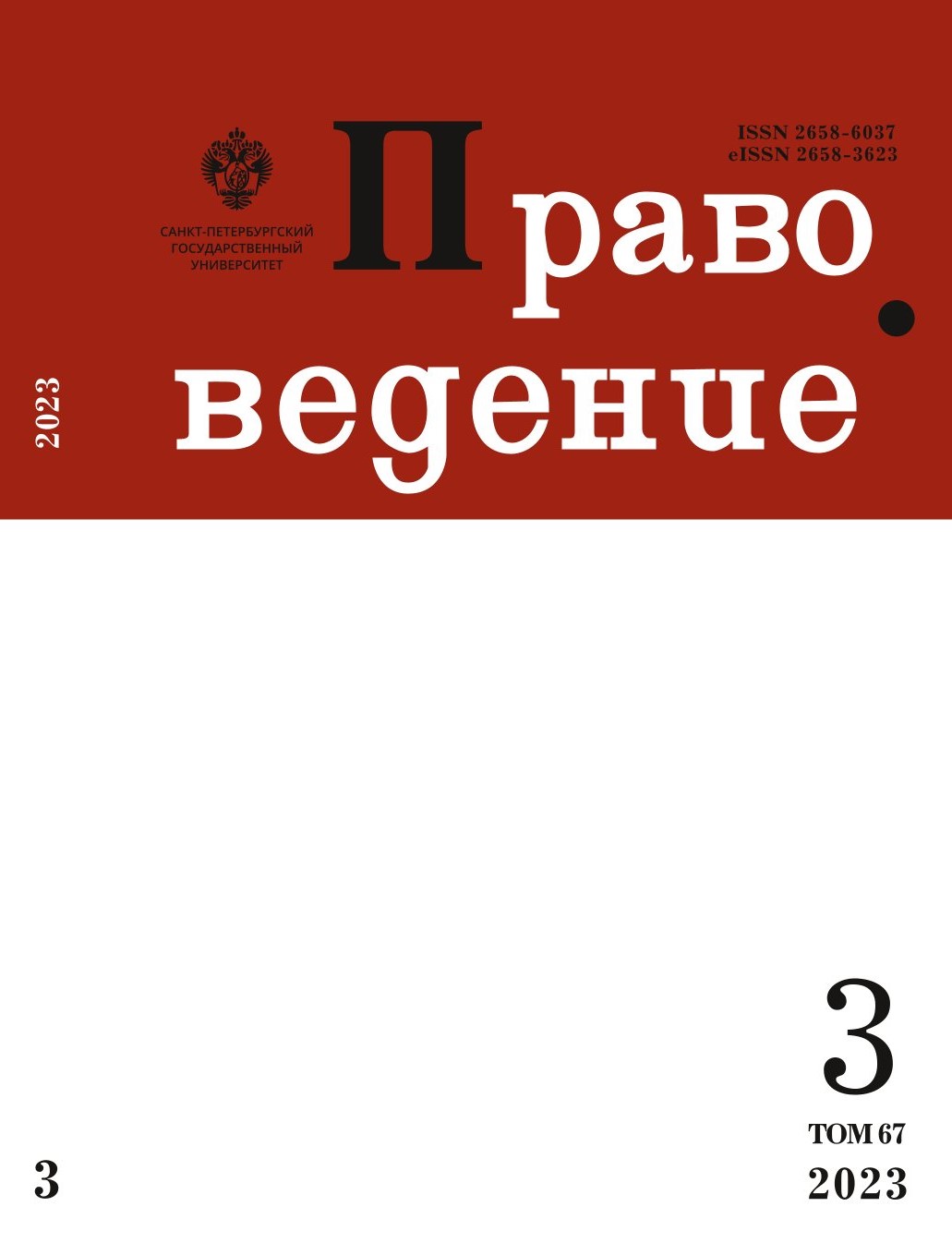A comparative overview on agricultural contracts in Sudan
DOI:
https://doi.org/10.21638/spbu25.2023.302Abstract
Sudan, like other African nations, has experienced challenges related to land ownership, aggravated by its previous status as the largest country in Africa before South Sudan’s secession. Traditionally, land in Sudan has been held collectively by tribes, managed by chiefs or tribal leaders through customary regulations. In this system, an individual’s right to land is derived from their membership in the community or tribe. Specific areas for communal use are exclusively reserved under customary law, where individuals can access them as a shared resource. This concept aligns with the notion of a native common good in modern terms, as described by the economic analysis of law, where ownership rights prevent individuals from excluding others. The right to exclude others does not apply in this case. These customary traditions remained mostly unaffected by colonial and post-colonial governments, which introduced a separate land tenure system based on the state’s authority to allocate land. Alongside these customs, Islam, as a religious faith, also played a significant role, providing principles and regulations that intertwined with customary traditions to form a binding body of law. However, the religious rules themselves are only one component of the living law, whose content is shaped through the interaction with customary practices. Official land law in Sudan, influenced by colonial practices, has undergone modifications under successive governments but remains fundamentally rooted in the colonial land laws. These laws were initially implemented to confiscate large land areas for commercial farming, particularly cotton production, and to regulate urban residency in support of colonial regime security. One of the fundamental issues related to rural land tenure stems from the principle introduced by the British colonial power in 1898, which assumes that unregistered land is owned by the government unless proven otherwise. Considering the premises, the purpose of this contribution is to analyse the land laws in Sudan and, in particular, the main type of agrarian contracts.
Keywords:
Sudan, agrarian law, Shari’a, customary law, agrarian contracts
Downloads
References
Abbadi, Karrar A. B., Ahmed, Adam E. 2006. Brief Overview of Sudan Economy and Future Prospects For Agricultural Development. Available at: https://reliefweb.int/report/sudan/brief-overviewsudan-economy-and-future-prospects-agricultural-development (accessed: 15.03.2023).
Abdalla, Seifeldin. 2010. Water Policy of Sudan: National And Co-Basin Approach, Ministry of Irrigation and Water Resources. Tehran, Regional Centre on Urban Water Management.
Ahmed Musa, Shamsedin, Ribbe, Lars. 2011. Analysis of water footprints of rainfed and irrigated crops in Sudan. Journal of Natural Resources and Development, 1: 20–28. https://doi.org/10.5027/jnrd.v1i0.03
Amin, Sayed Hassan. 1985. Middle East Legal Systems. Glasgow, Royston.
Ashok, Swain. M. 2008. Mission Not Yet Accomplished: Managing Water Resources In The Nile River
Basin. Journal of International Affairs 61, 2: 201–214.
Castro, Francesco. 1987. Al-ahkàm al-khamsa. Digesto. Turin, Utet.
Chenata, Chafik. 1969. Théorie générale: de l’obligation en droit musulman hanefite. Les sujets de l’obligation. Paris, Bibliothèque Dalloz.
D’Emilia, Antonio. 1961. Fiqh (Iurisprudentia islamica). Novissimo Digesto Italiano. Turin, Utet.
Dilger, Konrad. 1974. Das Sudanische Zivilgesetzbuch von 1971 und sein Verhältnis zu den anderen arabischen Zivilgesetuzbüchern. Zeitschrift für Vergelichende Rechtsuissenschaft.
Fluehr-Lobban, Carolyn. 1987. Islamic Law and Society in Sudan. London: Frank Cass.
Gordon, Carey N. 1985. The Islamic Legal Revolution: The Case of Sudan. The International Lawyer 19, 3: 793–815.
Gordon, Carey N. 1986. Recent Development in the Land Law of the Sudan: A legislative Analysis. Journal of African Law XXX, 2: 143–174.
Castro, Francesco. 1985. La codificazione del diritto privato nei paesi arabi contemporanei. Rivista di Diritto Civile XXXI, 4: 387–447.
Omer, Abdeen M. 2011. Agriculture Policy in Sudan. Agricultural Science Research Journal 1(1): 1–29.
Santillana, Domenico 1932. Istituzioni di diritto malikita con riferimento al sistema sciafiita. IPO, Rome.
Schacht, Josef. 1964. An lntroduction to lslamic Law. Oxford, Oxford University Press.
Shazali, Salah. 2002. Pastoral Land Tenure in Sudan, Project Reduction of Resource based Conflict between Pastoralists and Farmers. Khartoum, UNDP Report.
Thompson, Cliff F. 1975. The Failure of Continental Codes in the Democratic Republik of the Sudan — An Analysis. Verfassung und Recht in Übersee. 3/4 Quartal.
Wallach, Bret. 1988. Irrigation In Sudan Since Independence. The Geographical Review 78, 4: 417–434.
Warburg, Gabriel. 1970. The Sudan under Wingate. Administration in the Anglo-Egyptian Sudan, 1899–1916. London, Taylor & Francis.
Zaki, Mustafa. 1971. The Common Law in the Sudan. An account of the “Justice, Equìty, and Good Conscience”. Oxford, Oxford University Press.
Ziadeh, Farhat J. 1985. Land Law and Economic Development in Arab Countries. American Journal of Comparative Law 33: 93–106.
Downloads
Published
How to Cite
Issue
Section
License
Articles of "Pravovedenie" are open access distributed under the terms of the License Agreement with Saint Petersburg State University, which permits to the authors unrestricted distribution and self-archiving free of charge.




